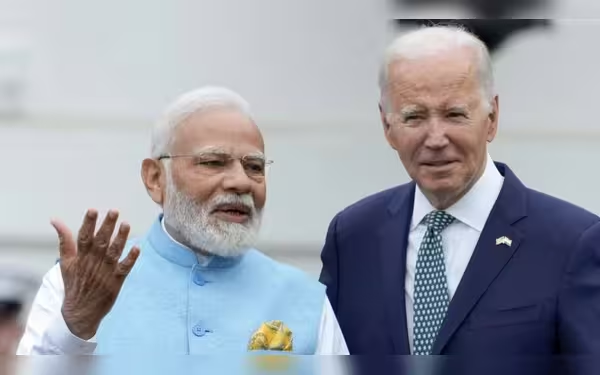Tuesday, July 2, 2024 03:25 PM
US Support for Controversial Leaders Raises Concerns
- Shift in perception of Modi and Zia by American foreign policy establishment
- Leaders embraced by US for strategic reasons despite controversial actions
- Concerns raised about implications for democracy and human rights
 Image Credits: thefridaytimes
Image Credits: thefridaytimesThe evolving relationship between the US and controversial leaders like Narendra Modi and General Zia-ul-Haq raises questions about the prioritization of strategic interests over liberal values, with potential implications for democracy and human rights in India and Pakistan.
In recent years, there has been a significant shift in the perception of political leaders like Narendra Modi and General Zia-ul-Haq by the American foreign policy establishment. Both leaders, initially viewed as persona non grata due to their controversial actions, eventually found favor with Washington for strategic reasons.
Modi, once shunned for his alleged role in the Gujarat massacre of 2002, has now become a key player on the international stage, particularly due to India's economic potential and its strategic importance in countering China. Similarly, Zia-ul-Haq, despite his authoritarian rule and human rights violations, was embraced by the US during the Soviet invasion of Afghanistan for geopolitical reasons.
Both Modi and Zia represent a shift in their respective countries' political ideologies, with Modi being seen as a threat to Indian secularism and Zia as a destroyer of Islamic modernism in Pakistan. Their rise to power and international prominence raise questions about the role of Washington in supporting leaders who undermine liberal traditions.
The comparison between Modi and Zia highlights a pattern where leaders who challenge liberal values are supported by the US for strategic interests, raising concerns about the long-term implications for democracy and human rights in India and Pakistan.













